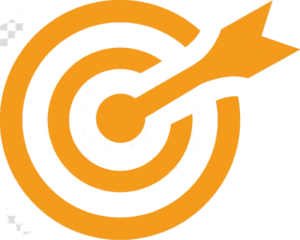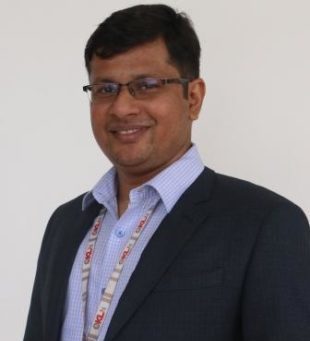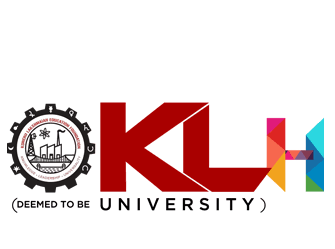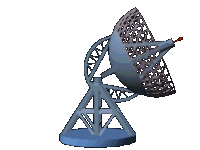Electronics and Communication Engineering
ECE is a broad engineering field with sub fields - Analog/Digital electronics, VLSI, 4G/5G, Radio and Satellite Communications, Embedded systems, Signal & Image Processing, Robotics, IOT, Smart Cities, Edge Computing, AI, Quantum Circuitry, Nano-electronics, Photonics, Renewable Energy and many others. The ECE discipline utilizes various simulation, algorithms and fabrication tools to develop active/passive electrical devices that include diodes, transistors, semiconductors, and integrated circuits, etc to aid in design and fabrication of electronic circuits, devices, VLSI devices, PCB, Nano-devices and their various application systems.
 VISION
VISION
To evolve into a globally recognized department in the frontier areas of Electronics & Communication Engineering (ECE)
 MISSION
MISSION
M1- To produce graduates having professional excellence.
M2-To carry out quality research having social & industrial relevance.
M3-To provide technical support to budding entrepreneurs and existing Industries.

Dr . M . Goutham, HoD
Email: ecehod@klh.edu.in
Program Educational Objectives (PEOs)
| PEO1 | Practice engineering in a broad range of industrial, societal and real world applications. |
| PEO2 | Pursue advanced education, research and development, and other creative and innovative efforts in science, engineering, and technology, as well as other professional careers. |
| PEO3 | Conduct themselves in a responsible, professional, and ethical manner. |
| PEO4 | Participate as leaders in their fields of expertise and in activities that support service and economic development throughout the world. |
Program Outcomes (POs)
| PO1 | Engineering knowledge: Apply the knowledge of mathematics, science, engineering fundamentals, and an engineering specialization to the solution of complex engineering problems. |
| PO2 | Problem analysis: Identify, formulate, review research literature, and analyze complex engineering problems reaching substantiated conclusions using first principles of mathematics, natural sciences, and engineering sciences. |
| PO3 | Design/development of solutions: Design solutions for complex engineering problems and design system components or processes that meet the specified needs with appropriate consideration for the public health and safety, and the cultural, societal, and environmental considerations. |
| PO4 | Conduct investigations of complex problems: Use research-based knowledge and research methods including design of experiments, analysis and interpretation of data, and synthesis of the information to provide valid conclusions. |
| PO5 | Modern tool usage: Create, select, and apply appropriate techniques, resources, and modern engineering and IT tools including prediction and modeling to complex engineering activities with an understanding of the limitations. |
| PO6 | The engineer and society: Apply reasoning informed by the contextual knowledge to assess societal, health, safety, legal and cultural issues and the consequent responsibilities relevant to the professional engineering practice. |
| PO7 | Environment and sustainability: Understand the impact of the professional engineering solutions in societal and environmental contexts, and demonstrate the knowledge of, and need for sustainable development. |
| PO8 | Ethics: Apply ethical principles and commit to professional ethics and responsibilities and norms of the engineering practice. |
| PO9 | Individual and teamwork: Function effectively as an individual, and as a member or leader in diverse teams, and in multidisciplinary settings. |
| PO10 | Communication: Communicate effectively on complex engineering activities with the engineering community and with society at large, such as, being able to comprehend and write effective reports and design documentation, make effective presentations, and give and receive clear instructions. |
| PO11 | Project management and finance: Demonstrate knowledge and understanding of the engineering and management principles and apply these to one’s own work, as a member and leader in a team, to manage projects and in multidisciplinary environments. |
| PO12 | Life-long learning: Recognize the need for, and have the preparation and ability to engage in independent and life-long learning in the broadest context of technological change. |
Program Specific Objectives (PSOs)
| PSO1 | An ability to Understand the theoretical and mathematical concepts to analyze real time problems. |
| PSO2 | An Ability to Design and Analyze systems based on the theoretical and Practical Knowledge |
ABET Student Outcomes (EAC):
- An ability to identify, formulate, and solve complex engineering problems by applying principles of engineering, science, and mathematics
- An ability to apply engineering design to produce solutions that meet specified needs with consideration of public health, safety, and welfare, as well as global, cultural, social, environmental, and economic factors
- An ability to communicate effectively with a range of audiences
- An ability to recognize ethical and professional responsibilities in engineering situations and make informed judgments, which must consider the impact of engineering solutions in global, economic, environmental, and societal contexts
- An ability to function effectively on a team whose members together provide leadership, create a collaborative and inclusive environment, establish goals, plan tasks, and meet objectives
- An ability to develop and conduct appropriate experimentation, analyze and interpret data, and use engineering judgment to draw conclusions
- An ability to acquire and apply new knowledge as needed, using appropriate learning strategies.

| Year | B.Tech: UG-ECE | |
| Students Enrolled | Students Graduated | |
| 2018 | 60 | Yet to graduate |

